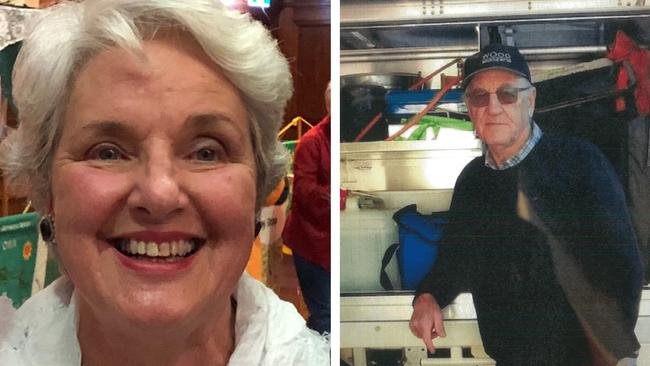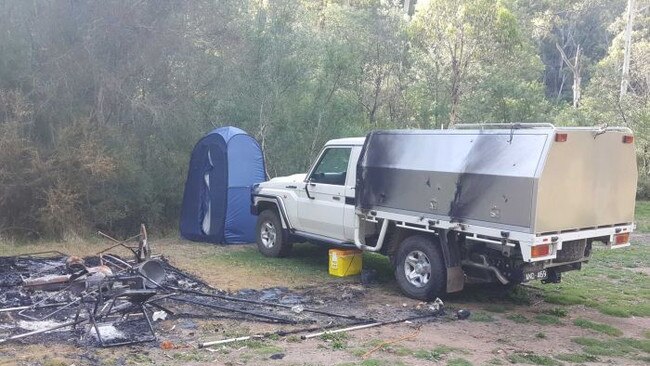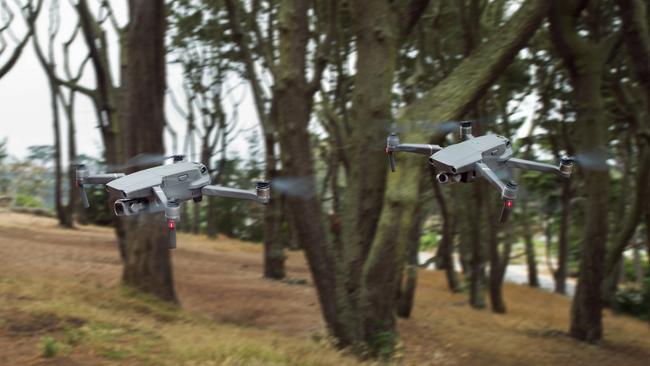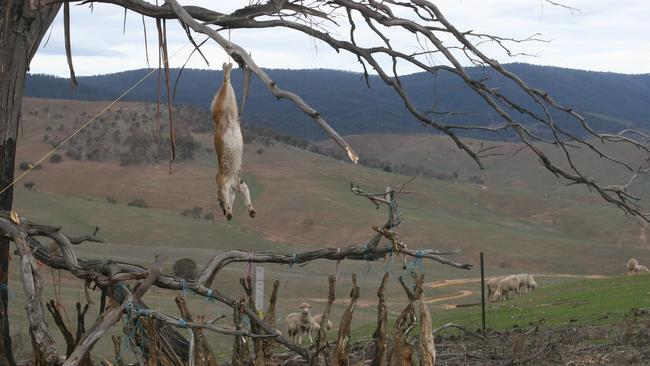Others in Wonnangatta Valley could hold key to missing camper mystery
It has been about 90 days since Russell Hill and friend Carol Clay went missing in a remote area of Gippsland’s High Country. Yet their whereabouts still remains a much-talked about mystery — now police have revealed the truth on their disappearance is likely down to these three scenarios.
Police & Courts
Don't miss out on the headlines from Police & Courts. Followed categories will be added to My News.
Time heals wounds, but it makes mysteries deeper. That’s why the disappearance of two old friends in Gippsland’s high country has become one of the most talked-about cases since the Wonnangatta murders in that area a century ago.
It is 93 days since Russell Hill picked up Carol Clay from near her Pakenham home on the morning of March 19.
To a casual observer, it was nothing odd. Just an outdoorsy 70-something man in a white Toyota Landcruiser, kitted out for camping, with a pleasant woman his own age.
They looked like grey nomads off on a small, sedate adventure. And so they were, except for one not-so-small thing: no one else in either family knew that these two old friends were going camping together, and they haven’t been seen since.
Russell Hill and his wife were long-time friends of Ms Clay, a popular figure in the Country Women’s Association. The Hills lived in Drouin after returning there from the timber town of Heyfield, when Mr Hill worked in the bush, getting logs for local sawmills in the 1980s.
As a logger, he would go through Licola to reach timber coupes, some of them towards the old Wonnangatta Station, notorious in East Gippsland because two men were murdered there around the Christmas of 1917.

On March 19, Mr Hill apparently took his usual route through Heyfield and Licola to Wonnangatta, which although remote is popular with 4WD and dirt bike enthusiasts, trail riders, bush walkers and hunters.
At first, there was confusion about when the couple vanished. It is now certain it was in the 18 hours after Mr Hill made a radio call to a friend late on March 20. He said he was about to set up camp near the old station homestead site.
Sometime that night or next morning, the pair disappeared. By the time a passing traveller saw their camp around 2pm next afternoon, March 21, the tent had burned down, slightly scorching the Toyota next to it. The ashes were cold, suggesting it had happened hours earlier.
The alarm wasn’t raised for days, by which time the trail was cold. When Sale police arrived, they found the Toyota locked. There was, in fact, a spare key hidden on the vehicle but it’s clear Mr Hill was probably carrying his usual keys.
Detectives know that no assumption is completely safe, but they believe some scenarios more likely than others.
Someone who has lived in the country all his life is unlikely to have locked his car while sitting next to it. But he would lock it if they went for a walk, because casual pilfering is common in remote spots that attract all sorts of people, including an undesirable minority among the hunting fraternity. And a few marijuana “crop minders”.

The fact the car was found locked implies the pair left the camp voluntarily. Which suggests if something happened to them, it was away from the camp.
But what about the fire? It could be a criminal act or completely coincidental. There is no forensic evidence an accelerant was used, but that doesn’t prove much because a plastic tent would not need any help to burn fiercely.
All it takes would be for the campfire to throw a spark onto the tent — or for the tent to be blown into the fire. On the other hand, if it was deliberate, a match or lighter would not leave any trace. Thieves often set fires, whether maliciously or to destroy fingerprints and DNA.
It’s highly likely that Mr Hill would light a campfire first thing in the morning. And just as likely that after breakfast, he would take his expensive DJI Mavic drone and take a walk with his friend. There’s not much else to do.
It is natural that anyone who spends $2000 on a drone is going to use it — and so run the risk of losing it, then of losing themselves looking for it. Drones are easily lost or damaged if flown among big trees, and some birds attack them on sight. The high country has plenty of eagles and hawks, species that resent drones.
An alternative theory to explain the drone’s absence is that Mr Hill left it in the tent and an opportunist thief took it before torching the tent. Whether such a thief would also commit murder is the great unknown.

Investigators now favour the idea that foul play is the most likely scenario. But this is a deduction made on the balance of probabilities, not from “smoking gun” evidence or a solid tip off.
Police calculate that the circumstantial evidence suggests a third party might be involved: someone who has buried two bodies or removed them completely.
The main reason for this idea is that searchers have now spent more than 30 days checking every likely walking route within a wide radius. This makes the Missing Persons Squad cautiously confident that if the couple died of exposure, some sign of them would have been found.
Of course, that is a best guess by professionals who are often right but not infallible. They are at a disadvantage in such a remote crime scene because in their usual urban surroundings, the modern investigators’ best tools of trade are CCTV and traffic camera footage, credit card transactions and mobile phone records. In the hills, they need bloodhounds, skilled trackers and luck … all in the first few days, which didn’t happen.
The fact that a belated search found nothing in the wild country either side of the Wonnangatta Valley doesn’t prove there is nothing to find. That was shown last week when autistic teenager Will Callaghan was lost for two nights in bushland near Melbourne.

For 48 hours an army of police and emergency services, search and rescue specialists, a helicopter with thermal imaging gear, and dozens of volunteers did excellent television interviews but failed to find any sign of William at Mt Disappointment. Then a lone bush walker who knows the area well turned up quietly, walked deeper into the bush than the “experts” and found the boy less than 150m from a road. An ounce of brain is worth a ton of brawn.
The Mt Disappointment result suggests that if Russell Hill and Carol Clay left easy walking paths (to look for the drone in the bush, let’s say) and got lost, there is every chance their remains might not be found. Because wild dogs eat bodies.
Police who camped at Wonnangatta recently found big dog footprints around their tent the next morning, proof that four-legged predators are always lurking. The question, of course, is whether there are also two-legged predators lurking.
What interests the Missing Persons Squad is that in late March up to 200 people could have passed through the search area, and any of them might have noticed another vehicle.
In any group that large, there will be one or two outliers who intrigue detectives. That is why they are urging everyone who was there, for any reason, to call them. Failing to do so means the police will want to know why.
Telephone reception is scratchy in the hills. But it does show who came and went, and when.
MORE NEWS
